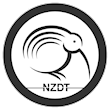 | |
| Industry | Cryptocurrency |
|---|---|
| Founded | 2014 |
| Founder |
|
| Defunct | May 14, 2019 (in liquidation) |
| Fate | Liquidated |
| Headquarters | , New Zealand |
| Services | Cryptocurrency exchange, cryptocurrencies |
Number of employees | 100 (peak) |
| Website | www |
Cryptopia was an international cryptocurrency exchange based in Christchurch, New Zealand. Founded in 2014 by Rob Dawson and Adam Clark, it was among the earliest cryptocurrency services started in the country, and was responsible for launching the first stablecoin pegged to the New Zealand dollar. Cryptopia experienced substantial growth in 2017 from 30,000 users to over 1.4 million by 2018. At its peak in late 2010s, Cryptopia was one of the top 100 cryptocurrency exchanges by trading volume, reportedly outpacing that of the New Zealand Stock Exchange, and went on to operate in 900 currencies.
Contents
- History
- 2014–2016: Founding and early years
- 2017: NZDT stablecoin and rapid growth
- 2018: growth issues and management disputes
- Cryptocurrency theft
- Internal sabotage theory
- FBI investigation
- Exit scam allegation
- Liquidation and legal disputes
- Ruscoe v. Cryptopia
- Cryptopia Rescue
- Employee theft incident
- References
In early 2018, Cryptopia began experiencing issues due to its rapid growth, including internal friction among management, resignations, and subsequent allegations of a toxic workplace culture. The company temporarily suspended new account creation and froze trading in Dogecoin and Litecoin, claiming an inability to handle the influx of new trades and citing security concerns. Further, the NZDT stablecoin was put on hold after ASB Bank closed the accounts associated with it, halting deposits and forcing customers to withdraw remaining NZDT funds. Clark then resigned due to burnout and a deteriorating relationship with Dawson, including allegations by his wife that a Cryptopia staff member had sexually harassed her. Later that year, Dawson resigned after feeling forced out by the incoming CEO Alan Booth. Dawson appointed his own father as sole director, who negotiated Booth out of the company, enabling Dawson to return.
In January 2019, Cryptopia was the target of a high-profile theft resulting in the loss of approximately 10% of its cryptocurrency assets, then worth NZ$24M. The incident has been described as one of the biggest thefts in New Zealand history, and was widely reported by media outlets in New Zealand and cryptocurrency news outlets internationally.
In the months following the incident, Cryptopia continued operating but suffered a substantial drop in trading activity, with security concerns and unresolved losses souring public confidence in the exchange. In May 2019, the company began the process of liquidation. Due to the scale of the theft and the relative infancy of cryptocurrency law at the time, Cryptopia was subject to an expensive and drawn-out legal process to resolve its obligations to account holders who lost cryptocurrency in the theft, which is ongoing as of 2025. The first round of Bitcoin and Dogecoin distributions to victims began in December 2024, with more than 10,000 verified account holders refunded NZ$400M worth of cryptocurrency.
The Cryptopia theft incident was the catalyst for Ruscoe v. Cryptopia, in which the New Zealand High Court held that cryptocurrency is a form of property, marking the first time in a Commonwealth country where cryptocurrency has been legally challenged as such.
